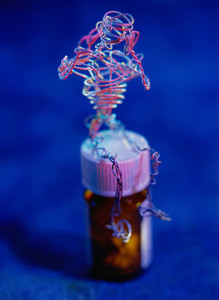The European Commission (EC) published a paper for the 8th Meeting of the STAMP Expert Group on 8 December 2017 regarding case studies on repurpose medicines which outlined some of the issues that are preventing development of generics for use in new indications [1]. This paper came in response to the meeting discussions of the EC’s Commission Expert Group on Safe and Timely Access to Medicines for Patients (STAMP) that convened on 27 June 2017 and has since started work on developing ways to encourage the repurposing of generics.
Europe calls for more drugs repurposing
Generics/General
|
Posted 15/02/2018
 0
Post your comment
0
Post your comment

When it comes to repurposing drugs which have lost their patent protection, there are a number of hurdles to success [2]. It has emerged that there is a lack of financial incentives in place for pharmaceutical companies. As such, the industry is not currently focussing on repurposing. In addition, regulatory barriers can prevent new development of drugs that are pre-existing and have been on the market for many years in other indications. These two factors hinder research into new uses for generics. The 2017 paper highlighted that developers from outside the industry are often blocked from conducting late-stage research because, if they are not the manufacturer, they cannot get new uses approved. In addition, there are issues related to a lack of information and data in the public domain, which can mean that tests and entire clinical studies have to be replicated at great expense.
Repurposed drug products have the advantage of being known quantities, with well documented side effects. In theory, this should mean that they can reach the market relatively quickly as they do not have to be developed from scratch, even though further trials are required to ensure the safety and efficacy of the pre-existing drugs in their new uses. Overall, time and money can be saved by repurposing that means increased drug availability to patients.
To increase the repurposing of existing approved drugs, regulators need to act and encourage pharmaceutical companies to take steps to repurpose older drugs. Speakers at the January 2018 Medicines for Europe regulatory affairs conference suggested that possible solutions could include tax incentives to repurpose generics, and the development of a pathway that allows researchers from outside of industry to file research findings with regulators. This could allow pharmaceutical companies to buy new licences once a new indication has been approved. In addition, regulators could waive fees if target patient populations are small, to encourage development of new treatments for rare diseases.
Drug repurposing has been successfully achieved in the case of thalidomide, a drug that had devastating side effects when used to treat morning sickness in pregnant women in the 1950s. However, this is now used frequently and successfully as a cancer drug [3]. Other drugs have also been successfully repurposed or are being investigated for repurposing [4, 5].
For example, a recent study carried out by researchers at the University of Alberta in Canada hopes to see the repurposing of cancer drugs for the treatment of cerebral malaria. This is one of the most serious complications caused by malaria in children and is estimated to affect 575,000 children in Africa annually. The cancer drugs in question are approved tyrosine kinase inhibitors and it is hoped that their repurposing could help treat of cerebral malaria, saving lives and preventing the development of language, attention and memory impairments.
Editor’s comment
Readers interested to learn more on value added medicines are invited to visit www.gabi-journal.net to view the following manuscripts published in GaBI Journal:
Value-added medicines: how repurposed medicines bring value to patients and pharmacists
GaBI Journal is indexed in Embase, Scopus, Thomson Reuters’ ESCI, and more.
Contribute a research or review paper to GaBI Journal – an independent, peer reviewed academic journal – send us your submission here.
References
1. European Commission. Repurposing of established medicines/active substances Agenda [homepage on the Internet] [cited 2018 Feb 16]. Available from: https://ec.europa.eu/health/sites/health/files/files/committee/stamp/stamp_8_repurposing_established_medicines_background.pdf
2. GaBI Online - Generics and Biosimilars Initiative. Challenges in the rediscovery of old generics [www.gabionline.net]. Mol, Belgium: Pro Pharma Communications International; [cited 2018 Feb 15]. Available from: www.gabionline.net/Generics/Research/Challenges-in-the-rediscovery-of-old-generics
3. GaBI Online - Generics and Biosimilars Initiative. Repurposing and re-registering old generics generics [www.gabionline.net]. Mol, Belgium: Pro Pharma Communications International; [cited 2018 Feb 15]. Available from: www.gabionline.net/Generics/Research/Repurposing-and-re-registering-old-generics
4. GaBI Online - Generics and Biosimilars Initiative. Repurposing thioguanine [www.gabionline.net]. Mol, Belgium: Pro Pharma Communications International; [cited 2018 Feb 15]. Available from: www.gabionline.net/Generics/Research/Repurposing-thioguanine
5. GaBI Online - Generics and Biosimilars Initiative. New use for old generic could treat rare cardiovascular condition [www.gabionline.net]. Mol, Belgium: Pro Pharma Communications International; [cited 2018 Feb 15]. Available from: www.gabionline.net/Generics/Research/New-use-for-old-generic-could-treat-rare-cardiovascular-condition
Permission granted to reproduce for personal and non-commercial use only. All other reproduction, copy or reprinting of all or part of any ‘Content’ found on this website is strictly prohibited without the prior consent of the publisher. Contact the publisher to obtain permission before redistributing.
Copyright – Unless otherwise stated all contents of this website are © 2018 Pro Pharma Communications International. All Rights Reserved.
Research
Japan’s drug shortage crisis: challenges and policy solutions
Saudi FDA drug approvals and GMP inspections: trend analysis
EMA launches European shortages monitoring platform to tackle persistent medicine shortages

Generics/General Posted 03/12/2024
FDA releases one-year progress report for the Generic Drug Cluster

Generics/General Posted 28/10/2022
The best selling biotechnology drugs of 2008: the next biosimilars targets








Post your comment